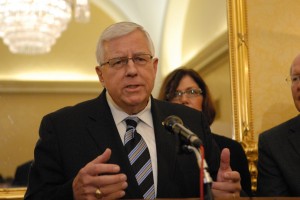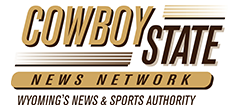
Enzi/Barrasso 5-24-19
The U.S. Senate passed bipartisan legislation with a 97-1 vote today to address the increasing number of robocall scams. The Telephone Robocall Abuse Criminal Enforcement and Deterrence (TRACED) Act, which U.S. Senators Mike Enzi and John Barrasso, both R-Wyo., cosponsored, gives regulators more time to find scammers, increases civil forfeiture penalties, promotes call authentication and blocking adoption and establishes a working group to better prosecute and deter illegal robocalls.
“I have heard from folks all over Wyoming about the countless scam phone calls they receive – and I’ve received several myself,” Enzi said. “These calls are a nuisance and many people have even become reluctant to answer their phones. I am glad the Senate took an important step to help consumers and hold these scammers accountable.”
“One of the biggest complaints I hear from people in Wyoming is that they’re being hassled by unwanted robocalls, which are often scams,” said Barrasso. “The TRACED Act will help stop these unwanted calls and crack down on the scammers and companies that are behind them.”
Summary of the TRACED Act:
- Broadens the authority of the Federal Communications Commission (FCC) to levy civil penalties of up to $10,000 per call on people who intentionally flout telemarketing restrictions.
- Extends the window for the FCC to catch and take civil enforcement action against intentional violations to three years after a robocall is placed. Under current law, the FCC has only one year to do so, and the FCC has told the committee that “even a one-year longer statute of limitations for enforcement” would improve enforcement against willful violators.
- Brings together the Department of Justice, FCC, Federal Trade Commission (FTC), Department of Commerce, Department of State, Department of Homeland Security, the Consumer Financial Protection Bureau and other relevant federal agencies, as well as state attorneys general and other non-federal entities to identify and report to Congress on improving deterrence and criminal prosecution at the federal and state level of robocall scams.
- Requires voice service providers to adopt call authentication technologies, enabling a telephone carrier to verify that incoming calls are legitimate before they reach consumers’ phones.
- Directs the FCC to initiate a rulemaking to help protect subscribers from receiving unwanted calls or texts from callers.
